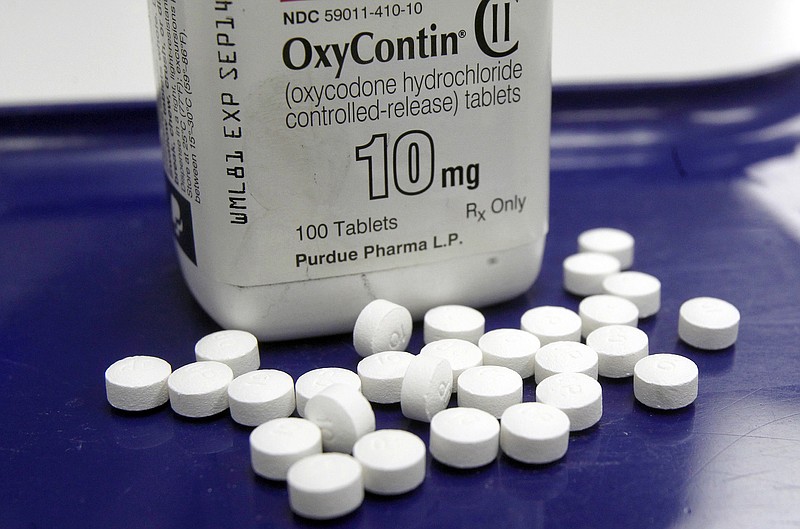It's an epidemic. There is no better name for the opioid crisis wreaking havoc on communities across America.
The statistics are more than alarming. They're flat out scary.
Drug overdoses are now the leading cause of accidental deaths in the United States, outpacing life-ending automobile and firearm mishaps. According to the American Society of Addiction Medicine, the annual count for overdose fatalities has eclipsed the 50,000 threshold, and as one of its most recent studies shows, opioids are the prime culprit.
In 2015, some 20,000 people died from prescription painkiller overdoses, and heroin (an opium extract) sent roughly 13,000 more to early graves. Want to know a depressing link? Four out of five new heroin abusers started out misusing prescription painkillers.
To that point, The Wall Street Journal ran an opinion piece last week by FOX News medical correspondent Dr. Marc Siegel in which he implored his fellow practitioners to explore other options before prescribing pain pills. He noted that while an estimated 100 million Americans suffer chronic pain, "only 27 percent of those taking opioids are using their own prescriptions."
Do the math. That means 73 percent of those abusing pain medications are attaining them improperly.
And contrary to what some folks think, opioid abuse isn't exclusively plaguing locales similar to the ones detailed in J.D. Vance's 2016 Appalachian memoir "Hillbilly Elegy" (quick plug: read it).
"My patients are district attorneys and teachers and nurses and doctors," said Dr. Daniel Sumrok, director of the University of Tennessee's Center for Addiction Science, in a recent Associated Press story. "They're not what you might think of as a TV bum; they're people who have real lives, real jobs, real families, real values who found themselves opiate dependent and need some help."
Indeed, the opioid battle isn't being fought only by faceless strangers in news stories, or by the friend of a friend of a friend, or by your third cousin twice removed up in Huntington, W.Va., who has been out of a job with a bad back for a couple of years. Chances are there are a few people at your work fighting their way out of a pill bottle. Scan the pews at church on Sunday, or the bleachers at your kids' next T-ball game. They're there too.
I should add that one of the key points of that AP article is that many African-Americans are aggrieved that the opioid problem is referred to as an "epidemic" since it's mainly experienced by whites - 90 percent of lethal prescription and heroin overdoses in 2015 were by white folk - while a "war on drugs" has been waged against the likes of crack cocaine, primarily trafficked in black communities.
That's an important distinction, considering it's about more than mere semantics. Phrasing influences corrective action. You cure the victim of an epidemic. You fight and imprison your wartime adversaries.
But we can learn from our mistakes.
By and large, America struck out in the war on drugs. From its lessons, though, we have the chance to better approach this burgeoning national scourge. For no matter the percentage-based demographic breakdowns, one thing is certain: Opioid abuse isn't rigidly confined to any race, gender, age or tax bracket.
Last Wednesday, President Trump pledged his administration would ramp up efforts to counter the crisis. Here's hoping more emphasis is placed on treatment efforts than is focused on incarceration rates.
Also, it's my hope individual states get to choose how federal resources are employed since the national epidemic manifests itself differently by location.
Here?
Some 1,500 Tennessee opioid deaths in 2015, and the score is not yet tallied for 2016.
It's gotten personal, hasn't it?
Contact David Allen Martin at davidallenmartin423@gmail.com and follow him on Twitter @DMart423.

